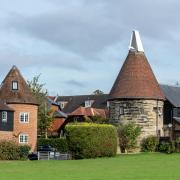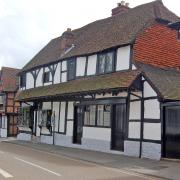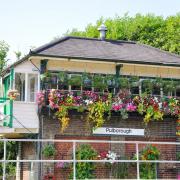These Sussex colleges are educating the next generation of agriculturalists
Plumpton CollegePlumpton College offers a range of land-based courses from animal care to landscape construction. It is also, however, a renowned centre for wine training in Europe, with graduates employed across the world and in all sectors of the wine industry. The main courses offered by the wine department include the BSc (Hons) Viticulture & Oenology degree and the foundation degree in wine production, which are the only undergraduate degrees in wine production delivered in English within Europe. These courses equip students with the scientific, technical and management skills required to become a professional vinegrower and winemaker. The courses have a strong practical bent; students are involved in the production of Plumpton College’s award-winning wines in the college’s well-equipped, commercial vineyard and on-site winery. The department offers a foundation degree in Wine Business, designed for students wishing to work in the wine trade or to start their own business. All courses include work experience and visits to European vineyards, and the wine department is currently involved with many industry and university collaborative research programmes, including work with Marks and Spencer, one of the UK’s leading retailers, and with Professor Richard Marchal of the University of Reims. The wine courses have recently benefited from generous sponsorship from investors including Martin Krajewski, from Chateau De Sours in Bordeaux and Mark Driver, a former hedge-fund manager now studying at Plumpton. Mark is planting a vineyard at Rathfinny Estate, East Sussex, and has donated a considerable amount of money towards the establishment of a wine research centre at the college.www.plumpton.ac.uk
Free taster courses The college offers free taster courses for school students in years 10/11 which provide a good introduction to the college and the courses. Subjects offered include amenity horticulture and sportsturf, countryside and conservation, floristry, gamekeeping, agricultural and plant machinery, animal care, blacksmithing, equine, agriculture, sport, forestry and arboriculture and rural pathways. Early application is recommended as places are much in demand. The next taster sessions take place in June for students in yrs 10/11.
Open DaySaturday 14th May. Experience all courses in action and meet with staff to discuss course options, get careers advice, and tour the facilities. Cost �5.00 (adult), free entry for under 16s.
The Biodynamic Agricultural CollegeFormerly part of Emerson College, the Biodynamic Agricultural College specialises in organic and biodynamic agriculture and horticulture. The college offers full-time accredited vocational training (European level 3 diploma), short courses and is currently developing online courses. Biodynamic agriculture is the oldest consciously organic approach to farming and one of the most sustainable, founded on a holistic understanding of nature derived from the work of Rudolf Steiner. Training consists of six months college-based learning, followed by a six month work placement, after which students return for a final six months at the college. Prospective students must have three months’ work experience on a farm prior to starting the course. Course graduates run biodynamic farms all over the world, work in therapeutic centres and run community farm projects.Sustainable farming is taught in a number of ways: via traditional classroom sessions, individual research, and project work where knowledge is applied to a given scenario.Practical skills are usually taught in the field or workshop. Students learn how to sow, plant, control weeds and harvest under the guidance of an experienced practitioner. They also learn more sophisticated techniques, such as vegetative propagation, grafting and pruning, in small groups from specialist tutors.Other skills include keeping animals (feeding, bedding, milking, breeding etc) and working with tools and technology (use and maintenance of hand tools, tractor driving, operator maintenance and small repairs, welding and so on).www.bdacollege.org.uk
The curriculumAgricultural science (soil science, plant science, animal science, astronomy)Practical skills (how to produce: transplants, vegetables, fruit, arable crops; practical animal husbandry; compost making; mechanisation)Business skills (accounting, business planning, marketing, etc)Social, team building and leadership skills (working in groups, working with employees, networking and so on)Arts (plant and animal observation, painting, modelling)
Open Days7 May, 4 and 25 June, 25 July and 13 August. The day will include a talk on biodynamic farming, a site tour and the opportunity to meet tutors over a barbecue lunch.


























